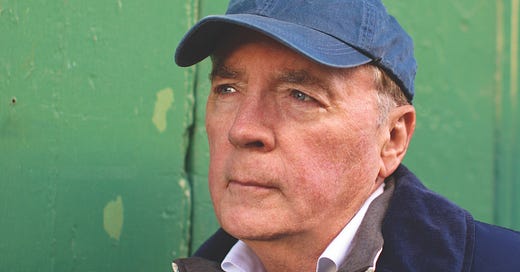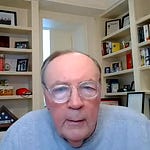LIES HE TOLD ME
Chapter 1
This is how I lost David.
It started right here, on the trail near the bank of the Cotton River, late September, as we walked together, David in a shirt and tie, me in a dress but wearing David’s suit jacket. I didn’t need to tell him I was cold. He shrugged off his jacket the moment the wind whipped up, dropping it like an electric blanket over my shoulders. David always represented warmth to me, a human radiator; I usually had to roll away from him in bed at night.
“What are we doing?” I asked.
To our right, the Cotton River ribboned through our town. It was tranquil this time of year, especially with the unseasonable cold, below fifty, too chilly for even the most ardent Jet Skiers and boaters who refused to acknowledge the end of summer.
“You’re taking a walk with your husband on his birth‑ day. Giving an old man his last wish.”
“Stop. Forty‑two isn’t old.” I squeezed his arm. “And I have news for you, mate — you don’t look old, either.”
He laughed that off, but it was true. Old is the last word I would ever use to describe David — the picture of health, muscle‑bound and trim, quick with that beaming smile.
“It’s the bald head,” he says. “Hides the receding hairline and the gray.”
Neither of which, as far as I could tell, was true. He’d always had that look, ever since the day I met him, thirteen years ago. Not many men can pull off a shaved head, but David could. The day I met him, my first take on him, in his tank top and shorts and running gear, was that he was a gym teacher, maybe a former football player who’d taken up marathon running after retirement.
“Here — stop,” he said.
“Right here on the path? Why?”
“What do you mean, why?” he said. “You said we could do whatever I wanted for my birthday.”
“Yeah, I did,” I said. “I figured it would involve me dressing up in a nurse costume or something. But whatever; it’s your call.”
David walked ten steps farther, then turned back to face me. Behind him, Anna’s Bridge, one of those creaky old truss bridges that always remind me of a carnival ride, though it looked majestic in the late afternoon, backed by a fluorescent orange sky, the river emblazoned with the sun’s reflection.
It was like a scene from a postcard.
“This is where we were standing,” he said. “The first time I saw you.”
I remembered. Of course I remembered. He’d stopped just in that spot, cooling off after a run, looking out over the river. I was jogging from the other direction, toward him, when I stopped right where I was now standing to adjust my music.
“You called out to me.”
He said to me then, What are you jamming on those headphones? Folk music? Polka? I laughed at the time. He was flirting with me, not particularly well, but I was drawn to his silliness, his confidence in being so playful, like he instantly knew for both of us that we were a match.
I remembered him two weeks later, when I ran into him at the start of a 10K race downtown. We ended up running the race together, clocking a slow time but talking and laughing all the while. It was some of the most enjoyable sixty‑one minutes and twenty‑eight seconds of my life. We were married within a year.
Now in his crisp dress shirt and purple silk tie, David walked up and touched his forehead to mine. “I knew right then, Marcie, the first time I laid eyes on you right here. I swear I did.”
This, this was what he wanted to do before our swanky dinner tonight. This was his birthday wish. Not a Bears game or a night in Chicago; not a trip to Vegas. Anything he wanted, I’d told him, just name it, and his choice was to return to the place we first met. That was David, my corny, romantic husband.
He kissed me softly, then whispered, “Now, what was that about a nurse’s costume?”
I laughed, bumping teeth with his. Then I looked over
David’s shoulder as an SUV sped onto Anna’s Bridge, veer‑ ing wildly, drawing a horn from an oncoming vehicle. The SUV broke sharply to the right, crashing into the truss’s side gate with a hideous crunch, the protective railings snapping free, the entire bridge rocking and swaying as the SUV’s nose broke free of the bridge and dangled over the edge for just a moment, as if aimed at the river below —
“Oh, no,” I whispered.
— before surrendering to gravity, the SUV hitting the water grille‑first, bobbing and floating for a moment before sinking below the orange glow of the water.
David threw off his shoes and sprinted toward the bank of the river.
“David, no! No!”
“Find a tree branch or something we can grab!” he shouted as he bounded down the incline, through the tangled foliage by the river’s edge.
“You can’t go in there!”
“Stay on shore!” he shouted back at me. “You can pull us in! And call 911!”
The lifeguard rules buzzed through my head — Don’t bring victims ashore: keep them afloat until help arrives — as I called out to David again, pleading with him in vain: “David, don’t! David, don’t!”
I pulled out my phone as he swam furiously through the water toward the crash site.
Just like that, hardly more than a snap of a finger, and life would never be the same.
Chapter 2
Come up, David. Come up for air.
Sirens screamed out from a distance. Hemingway Grove police and fire, responding quickly, but it wouldn’t be quickly enough.
I’d kicked off my heels, ready to jump in, those lifeguard rules again stopping me. David was right. It was best that I stand by the shore, ready to haul people onto the bank if they could make it that far.
If.
“Come up, David.”
The SUV had fallen in the dead center of the river, which was the width of around half a football field, or so it had been described to me when I was a child. David had swum the twenty, maybe thirty yards in no time. That wasn’t the problem; he was a strong swimmer, a triathlete. The problem was how long he’d been under once he reached the spot where the SUV had sunk. I tried to keep track of the seconds but couldn’t stay calm, couldn’t trust my count.
Forty‑five seconds? A minute? Maybe it was more like thirty seconds. Maybe he still had time.
I started toward the water, nearly sliding down the incline. I couldn’t fathom not going in to help David. But one thought kept me on solid ground, and it wasn’t the lifeguard rules. It was an ugly but necessary thought.
Our kids, Grace and Lincoln. They couldn’t lose two parents in one day.
I couldn’t believe I was even thinking such a thing, that David could be gone. He’d come up for air, right? Even if he couldn’t pry free the driver and any other passengers, his instincts would force him to the surface for air, right?
People were shouting from the bridge, people behind me, bikers and joggers, stopping and calling out, too. Some of the people on the bridge were taking videos with their phones. All eyes were fixed on the water, waiting helplessly.
The sirens grew closer.
I couldn’t believe this was happening. Minutes ago, nuzzling by the place we first met, sharing a treasured memory, remembering how lucky I felt to have him, and suddenly, just like that, David was . . . no, I couldn’t let myself believe it was possible.
It had been more than a minute since he’d been under‑ water. I was sure of it. My head woozy, I finally remembered to breathe, something my husband could not do.
Then all sound was lost as my vision grew fuzzy with tears. So many thoughts and emotions bombarding me . . .
— how will I tell the kids; how will it affect them?
— he’ll come up for air, of course he will;
— how unfair that he did everything right in life, followed the rules, cared for and loved his family, and he has to be taken away by the actions of some reckless, probably drunk, driver;
— he’ll survive, you know he will, you know David;
— why did today have to be his birthday, why did this have to be his birthday wish, why did we have to be at this spot, why couldn’t we have been anywhere else, anywhere else in the world?
And I felt myself but couldn’t hear myself screaming, shouting, pleading —
Then I sensed a whoosh overhead, a strong current of air passing over me. A helicopter, the words HEMINGWAY GROVE RESCUE on the side, racing through the air toward the crash site, as people on the bridge waved and pointed toward the spot in the water.
He’ll come up for air, I told myself. He just will.
The helicopter hovered over the area, dangerously close to the bridge. A panel door slid open automatically; a ladder unfolded from a mechanical lever, lowering to the water’s surface.
Jump in, I silently pleaded. Jump in and rescue him.
But I could see nobody in the helicopter save the pilot. The police hadn’t had time to scramble a rescue team — just the copter itself, from wherever it had been nearby.
He’ll grab the ladder, I told myself. They’ll fly him to safety. He’ll wave to the crowd a hero, and we will live happily ever after.
Believe it will happen. Believe it with all your will. It will happen. Believe it will happen.
Grab the ladder, David. Please. Please, David, grab the ladder and come back to us. Don’t leave us on your forty-second birthday, not when the kids are so young and need you, not when we have so much time left together.
Grab the ladder, David. Do it. Now.
A hand popped out of the water and grabbed a rung of the ladder.
Chapter 3
David did the smart thing: he didn’t try to swim with the unconscious man to the river shore. He stayed right where he was, his left arm wrapped around the ladder’s rung, his right arm around the chest of the man he’d pulled from the SUV, bracing himself against the current of the river.
I stood by the riverbank, still in shock, wilting with relief, feeling like a miracle had just been bestowed on me. But he wasn’t safe yet. That water was cold, and freezing water saps strength. How long could he hold both himself and a grown man out of the water?
I watched him, never took my eyes off him, while I hit Redial for 911. “A marine unit is on its way, ma’am,” I was told.
“Hold on — a boat is coming!” I shouted, but I was certain David couldn’t hear me, focusing his energy on stay‑ ing above water, the harsh splashes from the river’s current, which seemed to be picking up, tossing him about while he clung to the ladder. Somehow, he managed to turn his head in my direction and find me. I waved to him and shouted, “I love you!” but he couldn’t possibly hear me or read my lips.
I saw it first from the reaction of the people on the bridge, pointing and jumping and shouting — the police rescue boat coming from the east, siren flashing, nearly flying over the water, racing to the scene.
“Get there, get there,” I whispered. “Hang on, David. Hang on just a little longer; they’re coming.”
The boat slowed and pulled up right alongside the ladder. Rescuers opened a side door on the boat and dropped some kind of wide, flat platform onto the water. Two officers crawled out onto it, as if carefully navigating an ice floe. One rescuer grabbed the man and pulled him onto the platform. The other rescuer dragged David onto the boat.
I exhaled the largest breath ever.
The boat sped off, presumably to some meeting point with an ambulance, while rescue workers looked to be performing CPR on the other man.
I ran back to our car, parked by the pub David owns, and drove quickly to the hospital. I called our daughter, Grace, who at age twelve had a phone. Hemingway Grove was a small town in most respects, and I wanted her to hear the news from me first. When I heard her voice, emotion clogged my throat. But I had to minimize the drama, the danger — I just told her that we’d had some excitement and Daddy had rescued a man who fell in the river. Everybody’s fine, I assured her.
Was I right?
WIN A PERSONAL ZOOM CALL WITH ME!
TO WIN:
Subscribe to HUNGRY DOGS at the button below.
Share this post.















Share this post